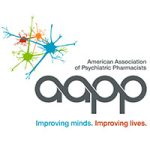What Are Generic Medications?
- Generic medications are equal substitutes for brand name medications.
- Generic medications are determined by the Food and Drug Administration (FDA) to be as safe as the brand name medications.
- Generics can look different from the brand name, but it does not change the way they work.
- The use of generics helps to lower costs.
Does The FDA Monitor The Safety Of Generic Medication?
The FDA monitors for safety, quality, and to make sure the medication is working the way it should be. The FDA makes sure generic medications are created under the same rules as the brand name.1
Is There A Generic Version Of My Medication?
One of the best ways to find out if a medication is available as a generic is to ask your local pharmacist.
Can A Pharmacist Automatically Change A Medication For A Generic Version?
Some states let pharmacists change a brand name medication to a generic medication if a physician does not ask for the brand name.4 Contact your physician, pharmacist, or other health care worker for information about your medications.
Compared To Brand Name Medications, Generic Medications Have The Same:
- Active ingredient
- Strength
- Form (capsule, tablet, injection)
- Onset of action
- Delivery methods (mouth, eye, ear)
More Information About Generic Medications:
In the United States, 9 out of 10 prescriptions filled at pharmacies are for generic medications. Many people wonder whether these medications are as good as the brand name medications. It is important for people to understand what generic medications are.
- Generic medications are copies of brand name medications. These copies are made to be the same as the brand name medication in form (capsules, tablet, shot), strength, safety, how they are given, quality, and what they do.2 They are checked by the FDA just like the brand name medications.
- It is important to know that generic medications may look different than the brand name. Differences may include size, shape, and color. These differences do not change how the medication works.1 A generic medication works in the same way and gives the same benefit as the brand name version. Generic medications are a substitute for the brand name medications.
- The generic medication is made after the brand name medication has been on the market for a set period of time. This is because new medications are protected by laws that stop other companies from making and selling them.
- Generic medication allows individuals to get medication for a lower cost than what it costs for the brand name medication. Many expensive tests were done by the brand name medication’s company that the generic companies are not required to repeat, which saves money.
- Many companies can be approved to create the same generics. This creates competition in the market. Competition can lead to lower prices and greater availability to patients. Generic medications can cost up to 80% less than brand name medications. 3
Generic Names For Common Mental Health Medications
Antidepressants
(Brand Name) → (Generic Name)
Celexa → Citalopram
Cymbalta → Duloxetine
Effexor → Venlafaxine
Lexapro → Escitalopram
Paxil → Paroxetine
Prozac → Fluoxetine
Zoloft → Sertraline
Viibryd → Vilazodone
Antipsychotics
(Brand Name) → (Generic Name)
Abilify → Aripiprazole
Clozaril → Clozapine
Haldol → Haloperidol
Seroquel → Quetiapine
Risperdal → Risperidone
Zyprexa → Olanzapine
Latuda → Lurasidone
Invega → Paliperidone
Geodon → Ziprasidone
Saphris → Asenapine
Mood Stabilizers
(Brand Name) → (Generic Name)
Lamictal → Lamotrigine
Lithobid → Lithium
Tegretol → Carbamazepine
Depakote → Divalproex
Last Reviewed: September 2024
Provided by

Candace Beam, PharmD, March 2019
To view the references for this resource, please visit aapp.org/362096.
©2024 The College of Psychiatric and Neurologic Pharmacists (CPNP). CPNP makes this document available under the Creative Commons Attribution-NoDerivatives 4.0 International License. Last Updated: January 2016.

